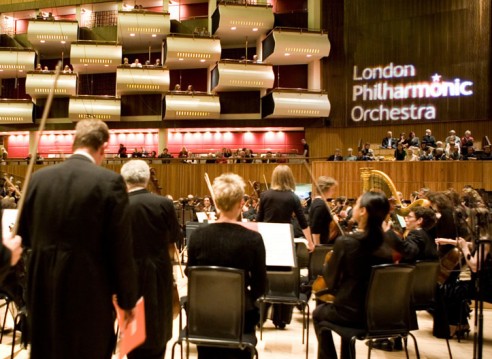Breaking: UK orchestras face new touring tax
OrchestrasPolitico reports that from April 1 British orchestras will no longer be able to claim tax relief on performances in Europe.
It appears to be a post-Brexit regulation and it will make tours in Europe non-viable, according to the ABO.
Details here.






All the comparative financial data used in the article are pre-Brexit, the question is, post-Brexit has touring already dropped to a level where the taxing it now is insignificant, because, I suspect, no one is touring anyway, tax or no tax.
And large entities like the LSO on their annual Paris weekend vacation ought to be paying taxes anyway.
The CBSO tours to Europe regularly and already has plans in place for future tours.
The ABO (association of British Orchestral managers) only has itself to blame for not having attacked Brexit’s cultural vandalism robustly enough from the start.
Brexit – the gift that keeps taking! Pre-Brexit/pre-covid, UK orchestras made regular short tours across the channel which effectively financially supported their UK work (generally loss-making). Brexit requirements made that much more administratively complicated, including the need to use European transport or set up EU companies to operate their own trucks because of the cabotage arrangements. UK orchestras can’t simply increase their fees and ticket prices because they are competing against the top touring orchestras who don’t carry these additional costs.
Now the UK government in its blinkered idea of WTO rules (did anyone say Brexit was a reversion to WTO terms when asking us to vote Leave?) is further reducing the viability of touring.
A government spokesperson said: “We are supporting the U.K.’s brilliant artists to adapt to the new arrangements and we continue to work across the EU to support our musicians to tour.” How exactly are they supporting – can someone from the government please explain?
Well, Brits. You wanted it, and now you got it! All of it. Celebrate Brexit with empty shelves, high inflation, and dwindling exports (now including orchestras). No surprise big name conductors no longer want to work there either.
Yeah, no big name conductors except Bychkov, Dudamel, Tilson-Thomas, Salonen, Noseda, Nelsons, Hrusa, Pappano, Petrenko, Alsop, Jurowski, Jarvi, Rattle, Yamada, Grazinyte-Tyla, Hindoyan, Schiff, Honeck, Ades, Karabits, Emelyanychev, Canellakis, Gardner, Elder, Sinaisky, Roth, Egarr, Harding, Cummings, Herreweghe, Morlot etc etc
Funny you should mention Rattle…
Funny you have to name several British and long time resident conductors to pad your argument.
‘Empty shelves, high inflation and dwindling exports’.
You need a reliable source of news.
But no demand for “evidence” from Mr Mitchell.
Helen, now you’re just being rude. Not what we expected.
Perhaps the solution is for UK orchestras to tour the UK more widely. Unless, that is, all UK towns and cities are already saturated with classical music concerts. How about campaigning for that?
Wouldn’t satisfy the Remoaner agenda though, would it?
And, as usual, no thought for the manual workers whose wages were suppressed as a result of cheap labour from more distant parts of the EU. Just a bunch of working class Brexit knuckle-draggers, I suppose.
Helen,
Many UK Orchestras visit a number of cities during each season. If you are simply saying add one or two more – then fine.
I wish you had made your point without sarcastic and divisive comments. 48% voted to remain but have long since accepted the result and are getting on with life. Please try to be more constructive.
Brexit comes up here time and time again, as I think you know perfectly well.
Good points, but remember the 52% who got us in this really stupid mess we in fact only about 19.4% of those registered to vote. Therefore if you didn’t vote at all (the majority of the UK electorate!) and are unhappy with the result, have a think about the guilt you poo seriously bear. Democracy only works when we participate.
Please provide a reference for your figures.
Where did your 19.4% come from?
I agree it’s poo
Perhaps if the natives had done the work with half the efficiency of the labour from abroad, there wouldn’t have been a gap in the market. As it is, your ‘solution’ falls at the first hurdle – there’s no more room. Well done anyway. Keep dragging those knuckles.
Were those wages really suppressed, Helen? Where do your draw your evidence from for that? And do you have evidence to show that manual worker wages have risen since?
A painter, for instance, with children and a mortgage cannot compete with a group of young men from E Europe with few overheads. And, Hacomblen, “efficiency” has nothing to do with it. It’s not a level playing field.
So far as evidence is concerned, a close family member has a sizeable heating engineering business which has been in existence for 25+ years. It employs and contracts with a large range of skills and disciplines. He knows the market, its ups and downs, and its problems.
I suspect that my “evidence” is no less substantial than many of the assertions here.
We can all come up with anecdotal quotes from apocryphal family members, Helen, or add in random straw men such as children and mortgage that are not relevant to the argument. You didn’t, of course, actually answer my questions.
“anecdotal quotes from apocryphal family members”
Your arrogance is breathtaking.
Mortgage and childcare costs made it virtually impossible for self employed tradesmen to undercut ridiculously low quotes from E European young men, living cheaply, often in shared accommodation. The problem was less acute in London and the South East, where the supply of house renovation work was and remains strong.
That’s not evidence, it’s an anecdote.
The local painter has to look for jobs in an area he knows in his native tongue, the younger painters from abroad had to move to an unfamiliar place, adapt to a different culture and communicate in a foreign language, they beat the locals based on quality and commitment but funnily enough that dragged upwards everybody’s wages because work still needed to get done and the quality of work of people from abroad meant they were really busy which meant the locals benefitted since they could fill the gaps left.
There’s no study that shows what you think happened, it is simply not true.
“they beat the locals based on quality and commitment”
Now where is YOUR evidence please?
Helen, for your future reference, here’s how to present evidence. As you will see, three major reports at different points in time all have similar conclusions contradicting your anecdotes.
“The empirical literature from around the world suggests little or no evidence that immigrants have had a major impact on native labour market outcomes such as wages and unemployment. Recent work by a number of other authors for the UK is also consistent with this view”. Blanchflower, D.G., Saleheen, J., Shadforth, C. (2007) The Impact of the Recent Migration from Eastern Europe on the UK Economy. Institute for the Study of Labor (Bonn).
“New evidence in this Report shows that the areas of the UK with large increases in EU immigration did not suffer greater falls in the jobs and pay of UK-born workers. The big falls in wages after 2008 are due to the global financial crisis and a weak economic recovery, not to immigration. There is also little effect of EU immigration on inequality through reducing the pay and jobs of less skilled UK workers. Changes in wages and joblessness for less educated UK- born workers show little correlation with changes in EU immigration. EU immigrants pay more in taxes than they take out in welfare and the use of public services. They therefore help reduce the budget deficit”. Wadsworth, J., Dhingra, S., Ottaviano, G., Van Reenan, J., (2016) Brexit and the Impact of Immigration on the UK. LSE Centre for Economic Performance (London).
“UK businesses view European migrants as more motivated, flexible and willing to work longer hours than the domestic labour force, according to a report from Government advisers. Employers do not think of themselves as hiring staff from the European Economic Area (EEA) because they are prepared to accept lower terms and conditions, but because they are higher quality or prepared to do work that British workers are not, the analysis found. Taking all the new evidence into account we found that migrants have no or little impact on the overall employment and unemployment outcomes of the UK- born workforce. In terms of wages the existing evidence and the analysis we present in the report suggests that migration is not a major determinate of the wages of UK- born workers”. Migration Advisory Committee (2018), EEA migration in the UK: Final report. UK Government (London).
Hope that helps.
No, it doesn’t help because it doesn’t appear to take into account the experience of the self-employed tradesman which, I thought it was clear, was central to my comment.
So far as employers are concerned, revelations about the Post Office show just how self-serving employers’ opinions can be.
As it happens, last year I needed several quotes for repair work to a retail business in N London. Five quotes were from E Europeans and not one would have been able to provide a VAT invoice. One of them said he could but, when pressed, didn’t actually have a VAT registration number.
The size of the contract would have made it extremely unlikely that they were below the VAT registration threshold.
Two that did were established, UK based builders. That’s 20% extra on the bill.
Let me think: let’s replace a market of 450 million people with one of 60 million.
I imagine economy isn’t your strongest subject.
As for manual workers, the UK’s per capita GDP grew every year the UK was part of the EU, the wealth was there, if local manual workers didn’t get it you must apportion blame somewhere else, freedom of movement achieved what it is intended to do: allow the market for the best allocation of resources, and funny that, it contributed to higher wealth.
“let’s replace a market of 450 million people with one of 60 million”
We didn’t.
Ideally it should be both, touring shouldn’t be a binary UK or EU issue. The issues of wage suppression is much wider than EU membership, it’s related to the spread of global capitalism. Currently it doesn’t seem that for lots of low wage jobs there are enough UK workers available – hence serious staff shortages in eg the care and hospitality sectors. Re Brexit, what are the advantages already gained for the music sector in your opinion? Thank you.
Chaperoned viola players fly for FREE!!
This is a bizarre claim from ABO.
It relates to Orchestra Tax Relief, whereby an orchestra can claim tax releif on qualifying preparation expenditure for loss-making productions (in effect). No UK orchestra undertakes touring to make a loss; tours are carried out because promoters pay high enough fees to cover the costs. There should be very little OTR being claimed in repsect of touring anyway, so very little, if anything, to lose.
It sounds like a bold claim to generate a headline, no more. Probably becasue the government generously doubles the OTR rate for a year or two to help orchestras post-pandemic, and they are desperate not to let it drop back to where it had been before. I cannot see that this has much to do with European (or any other) touring.
Prediction: Monteverdi Choir and Orchestras will move to France as a result of this. Performing and touring abroad is their bread and butter.